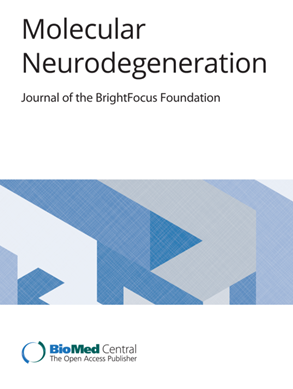帕金森病先发于肠道,是由肠道菌群失调造成的
IF 14.9
1区 医学
Q1 NEUROSCIENCES
引用次数: 0
摘要
在帕金森病患者中,肠道菌群失调可能在临床诊断前数年就已发生,这说明肠道及其微生物群与帕金森病有关。最近的证据表明,肠道微生物群可能会诱发帕金森病(PD),但其潜在机制仍不清楚。本研究旨在阐明肠道免疫改变导致的微生物群失调如何引发帕金森病相关神经变性。为了确定肠道菌群失调对帕金森病病理发展和进展的影响,研究人员给野生型雄性 C57BL/6 小鼠移植了帕金森病患者和年龄匹配的健康供体的粪便,以挑战肠道-免疫-脑轴。这项研究表明,来自患者的肠道微生物群会导致中脑酪氨酸羟化酶阳性(TH +)细胞丢失和运动功能障碍。回肠相关微生物群的重塑与 Th17 平衡细胞的减少有关。这一事件导致肠道炎症和肠屏障破坏增加。在这方面,我们发现骨髓增生性疾病移植小鼠血液中 CD4 + 细胞减少,促炎症细胞因子增加,这可能导致血脑屏障通透性增加,表现为间脑 Ig-G 阳性微血管渗漏增加,间脑 IL-17 水平升高,这与全身炎症相符。此外,α-突触核蛋白聚集体可向尾骶部扩散,导致神经元线粒体碎裂。这种线粒体损伤随后会激活神经元的先天性免疫反应,并引发小胶质细胞活化。我们认为,帕金森病患者肠道微生物组(dysbiome)的失调会破坏回肠粘膜中健康的微生物组和 Th17 平衡免疫,导致向大脑传播的级联效应,最终导致帕金森病的病理生理学。我们这项具有里程碑意义的研究成功鉴定了新的外周生物标志物,这些标志物可用于开发高效策略,防止帕金森病向大脑发展。本文章由计算机程序翻译,如有差异,请以英文原文为准。
Gut-first Parkinson’s disease is encoded by gut dysbiome
In Parkinson's patients, intestinal dysbiosis can occur years before clinical diagnosis, implicating the gut and its microbiota in the disease. Recent evidence suggests the gut microbiota may trigger body-first Parkinson Disease (PD), yet the underlying mechanisms remain unclear. This study aims to elucidate how a dysbiotic microbiome through intestinal immune alterations triggers PD-related neurodegeneration. To determine the impact of gut dysbiosis on the development and progression of PD pathology, wild-type male C57BL/6 mice were transplanted with fecal material from PD patients and age-matched healthy donors to challenge the gut-immune-brain axis. This study demonstrates that patient-derived intestinal microbiota caused midbrain tyrosine hydroxylase positive (TH +) cell loss and motor dysfunction. Ileum-associated microbiota remodeling correlates with a decrease in Th17 homeostatic cells. This event led to an increase in gut inflammation and intestinal barrier disruption. In this regard, we found a decrease in CD4 + cells and an increase in pro-inflammatory cytokines in the blood of PD transplanted mice that could contribute to an increase in the permeabilization of the blood–brain-barrier, observed by an increase in mesencephalic Ig-G-positive microvascular leaks and by an increase of mesencephalic IL-17 levels, compatible with systemic inflammation. Furthermore, alpha-synuclein aggregates can spread caudo-rostrally, causing fragmentation of neuronal mitochondria. This mitochondrial damage subsequently activates innate immune responses in neurons and triggers microglial activation. We propose that the dysbiotic gut microbiome (dysbiome) in PD can disrupt a healthy microbiome and Th17 homeostatic immunity in the ileum mucosa, leading to a cascade effect that propagates to the brain, ultimately contributing to PD pathophysiology. Our landmark study has successfully identified new peripheral biomarkers that could be used to develop highly effective strategies to prevent the progression of PD into the brain.
求助全文
通过发布文献求助,成功后即可免费获取论文全文。
去求助
来源期刊

Molecular Neurodegeneration
医学-神经科学
CiteScore
23.00
自引率
4.60%
发文量
78
审稿时长
6-12 weeks
期刊介绍:
Molecular Neurodegeneration, an open-access, peer-reviewed journal, comprehensively covers neurodegeneration research at the molecular and cellular levels.
Neurodegenerative diseases, such as Alzheimer's, Parkinson's, Huntington's, and prion diseases, fall under its purview. These disorders, often linked to advanced aging and characterized by varying degrees of dementia, pose a significant public health concern with the growing aging population. Recent strides in understanding the molecular and cellular mechanisms of these neurodegenerative disorders offer valuable insights into their pathogenesis.
 求助内容:
求助内容: 应助结果提醒方式:
应助结果提醒方式:


